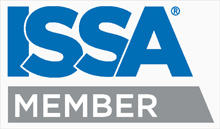Triclosan: Is it necessary?

What is Triclosan
Triclosan is an antimicrobial agent that has become a staple in consumer products since the 1990s. In addition to being added to hand soaps, toothpaste, mouthwash, and cleaning products, Triclosan can be found in socks, kitchen utensils, trash bags, bath towels, and bed sheets. It has become so prevalent that studies estimate 3 in 4 Americans have Triclosan accumulated in their bodies. Amid growing concern that Triclosan is possibly harmful to human and environmental health, the FDA is proposing regulations that require manufacturers to prove that Triclosan has added antibacterial benefits that outweigh possible health risks.
Effects of Triclosan
While the amount of Triclosan a person would be exposed to by washing their hands once is minimal, studies show that long-term exposure can weaken muscle contractions and affect hormone balances in animals. While the effects on humans are not fully known, more research is being done on the subject.
Antibiotic Resistance
Possibly more concerning than the health effects is the potential for Triclosan to contribute to antibiotic resistance, which is a growing problem in hospitals and health care facilities. Alcohol-based hand sanitizers kill bacteria instantly by dissolving the bacteria’s cell membrane. Triclosan-containing hand soaps work by interfering with bacteria’s ability to make food. Because this is a longer process, it gives bacteria time to develop resistance. By being exposed to Triclosan, bacteria can also develop resistance to common antibiotics that work in the same way, such as amoxicillin.
Minnesota recently passed a law banning Triclosan-containing hand soaps that will be implemented in 2017, and as research into its efficacy and health effects continues, more states are expected to follow Minnesota’s lead.
More information about Triclosan can be found on the EPA website
Multi-Clean offers a full line of hand soaps that can be viewed on the Skin Care webpage

